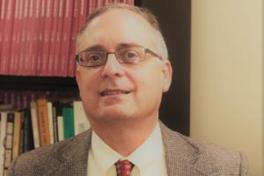
These are uncertain times and COVID-19 has impacted all of our daily lives. The virus has drastically reshaped the Department of Economics. Faculty members have moved courses online, students are learning remotely, and staff members are working from home. The response from the Department of Economics has been extraordinary.
Through the commitment, ingenuity, and flexibility of the department’s faculty and staff, we have been able to continue our core functions of teaching, providing support to students, conducting research, and carrying on the business operations of the department. Faculty and staff have successfully transitioned all 36 undergraduate and 32 graduate courses online for the second half of spring semester. Departmental events has moved online including a Career Services Panel and our Economics Advisory Board meeting. As part of our response to COVID-19, the department has created a Committee for Online Instruction. This committee will work to increase and improve the quality of our online courses. We also have a team of researchers, led by Professor Bruce Weinberg, who will estimate the economic effects of COVID-19 and the policy responses to it. The department along with the College of Arts and Sciences hosted a webinar with Professor Weinberg discussing this research project.
The quality of our faculty, students, and programs is high. We have a winner of the Alumni Award for Distinguished Teaching and several Distinguished Scholar Award winners on our faculty. We are publishing in the economics profession’s top journals and receiving research grants from the NSF, NIH, and other prestigious sources. One of our recent graduates was awarded an NSF Graduate Research Fellowship. Despite the impact of COVID-19, all of our Ph.D job market candidates accepted job offers including offers at Miami University, Bank of Canada, and Federal Trade Commission. Demand for economics courses is healthy. We continue to provide about 40,000 credit hours per year, and our number of majors has held steady.
Our main goal over the next several years is to restore the Department to full strength, in terms of the number of tenure track faculty and graduate students. This goal has been a challenge, due to retirements and tight budget conditions at the College of Arts and Sciences. Nonetheless, we are pleased to welcome Tamar Oostrom (PhD, Massachusetts Institute of Technology, 2020) as an assistant professor starting in Autumn 2020. We are currently searching for the inaugural Eric Byron Fix-Monda Endowed Professor in behavioral finance, thanks to a transformative gift from Keith and Linda Monda.
Your support of the Department is more important than ever. A key source of support for the Department is gifts from alumni and friends. These have become quite important for activities that help the department improve: funding undergraduate scholarships and prizes, graduate research scholarships, support for graduate students to travel to conferences to present their research, and seminar programs that bring scholars to campus to discuss their research. We now have a coordinated effort thanks to the hard work of our Economics Advisory Board. They have provided key leadership in reaching out to our alumni and encouraging faculty engagement.
I hope you enjoy reading about our new faculty member, Meta Brown, graduate student, Yaming Cao, undergraduate student, Alexander Williams, and our new staff member in charge of career services, Stephanie Petrov. This issue also features Young Alumni Spotlight stories about John Conlon and Cameron Conrad.
Cordially,
James Peck
Department Chair
